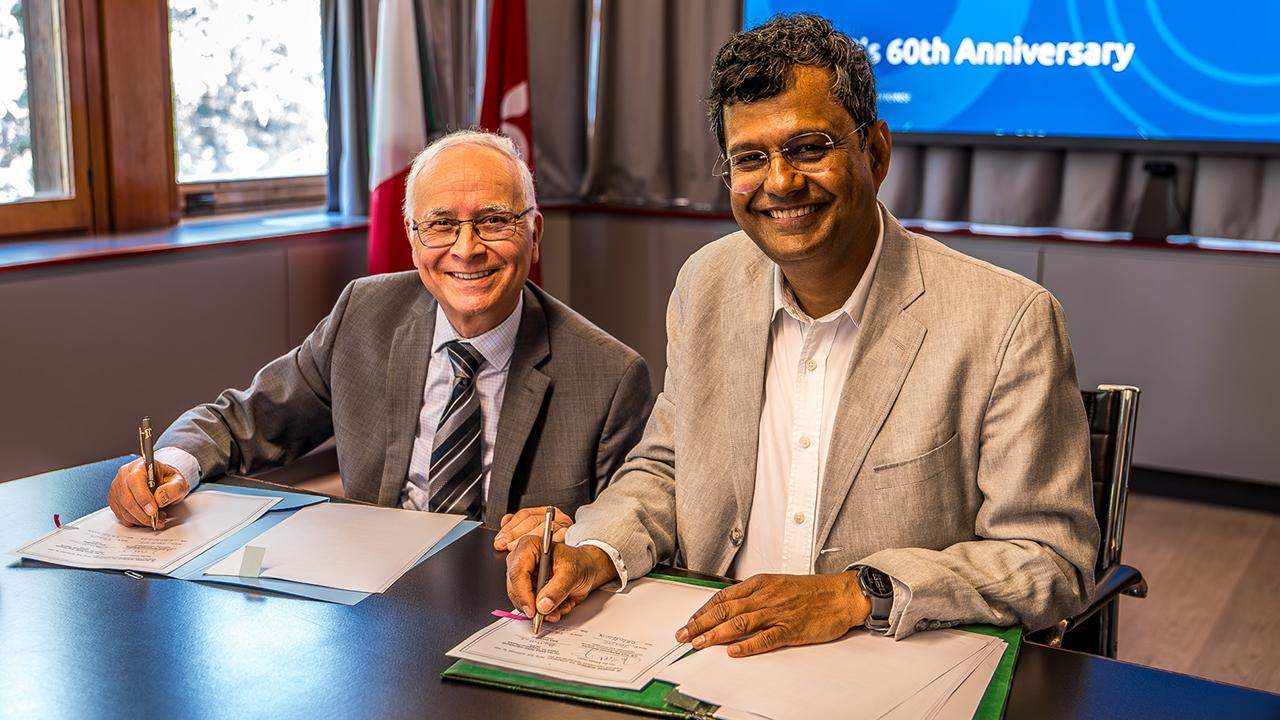
Africa plays a key role in ICTP’s mission to advance science globally. Since its founding, ICTP has supported the visits of more than 22,000 African scientists from 54 African countries to its campus in Trieste. Of the more than 6000 scientists who participate in ICTP activities every year, about 1000 come from Africa, 34% of whom are women.
On its side, the African Union is working towards the ambitious objectives of its Agenda 2063, a strategic framework that aims at inclusive social and economic development to reposition Africa in the global geopolitical landscape. Pursuing their common goals, ICTP and the African Union have recently committed to working more closely with one another in order to promote education and research in mathematics and the physical sciences across the African continent.
On 8 July, ICTP hosted a visit by an African Union delegation led by Mohamed Belhocine, Commissioner of the African Union's Education, Science, Technology and Innovation (ESTI) Programme, which promotes research and science education policy on the continent. At that meeting, the two organisations signed an agreement to strengthen their cooperation through a series of concrete projects.
Among the projects is an effort to facilitate access to knowledge and resources for scientific computing in the African continent, as part of ICTP’s International Consortium for Scientific Computing (ICOMP), an initiative that the Centre launched last May.
The two organisations also committed to strengthen exchanges between ICTP and the Pan-African University, and between the Pan-African Institute and ICTP’s partner centre in Rwanda, the East-African Institute for Fundamental Research. The agreement also states that ICTP and the African Union will collaborate to enhance capacity in Africa towards the creation of an African synchrotron.
















